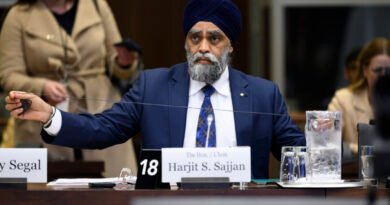NSW Premier to Bolster Hate Speech Legislation
The news comes amid a string of anti-Semitic attacks targeting the Jewish community.
New South Wales (NSW) Labor Premier Chris Minns is planning to tighten hate speech laws when state parliament resumes next month amid a rise in anti-Semitic incidents in the community.
“So we are going to be looking at that aspect of the law that’s in place in other jurisdictions around Australia. I think self evidently something needs to change.”
Minns highlighted the attacks were not simply isolated incidents.
“I don’t think the spark for these attacks—whether it’s a firebombing, whether it’s graffiti, whether it’s malicious damage—begins and ends with someone on a street corner on Sydney’s east. I think it begins with the kind of hateful rhetoric that inspires someone to commit a destructive racist act,” he said.
In a separate incident in Sydney’s suburb of Woollahra, vandals torched a car and sprayed anti-Semitic slogans on walls.
Opposition Pledges to Tackle the Issue
Federal Opposition Leader Peter Dutton is pledging new action to tackle rising anti-Semitism.
If elected, the Coalition will mandate a minimum term of six years prison for all acts of terrorism under Commonwealth law.
Further, it would amend legislation to make it a hate crime to urge or threaten violence against a place of worship, with prison sentences between five and seven years.
“Under Labor, the Jewish community feels under siege and abandoned.”
But Prime Minister Anthony Albanese said the government has taken all possible actions against anti-Semitism.
“We established Operation Avalite and the first arrest occurred last Thursday. These instances of hate that we have seen aimed at the Jewish community are crimes and they should be prosecuted to the full and the full force of the law brought to bear on those who engaged in these crimes.”
Albanese noted the government had outlawed Nazi symbols and also passed legislation to ban doxxing, which has targeted members of the Jewish community.
Three Hostages Released
Anti-Semitic incidents in Australia continue to occur despite Israel and Hamas negotiating a ceasefire deal, which is set to continue for 42 days as prisoners and hostages are released.
Three hostages, Romi Gonen, Emily Damari, and Doron Steinbrecher were handed over to the Israeli Defense Force on Jan. 19. In exchange, Israel released 90 Palestinian prisoners including women and minors.
At the international level, Israeli Deputy Minister of Foreign Affairs Sharren Haskel has recently drawn a link between the rising anti-Semitism in Australia and the government’s stance on Israel.
Haskell made the comments on X following a meeting with Australian Attorney General Mark Dreyfus in Jerusalem, Israel.
“I emphasised our deep concern regarding the shocking rise in antisemitism in Australia and the clearly ineffectual response from the Australian government and state governments. There is no doubt this has been caused in part by the Australian government’s ongoing campaign against Israel.”
Haskell expressed her expectation and hope that Australia’s policy towards Israel would return to reflecting their long-standing relations based on shared values and interests.





